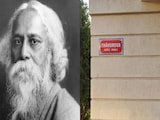The Russian government took a sensitive stand on the appeal of Manu Srivastava of Lucknow to save the life of his 21-year-old son Ansh Srivastava, who is suffering from cancer.
Manu Srivastava told ANI that the cancer vaccine in Russia was not available in India, and so he requested the Russian government to conduct its vaccine trial on his son.
"I requested them, since my son had stage four cancer here. He's being treated here, but the doctors haven't been fully responsive. I was worried as there was no certainty. So when I learned that a vaccine had been developed in Russia, proving very effective in treating cancer, I sent letters to the Government of India and the Russian government. The reply came back saying my request was under consideration and the Russian government had sent it to their Ministry of Health for further processing," he told ANI.
"We also wrote to the Indian government. A letter came from there as well. It stated that the vaccine, currently manufactured in Russia, is being implemented only in Russia. The people conducting the trials are local. So, we, and no other country, have yet received approval to conduct trials," he added.
Manu Srivastava wrote to Prime Minister Narendra Modi, Chief Minister of Uttar Pradesh Yogi Adityanath, Union Health Minister, as well as high officials of Russia and South Korea, requesting that his son Ansh be included in the trial of the cancer vaccine being developed in Russia.
In response to this appeal, an official letter has been received from the Government of the Russian Federation on October 27.
Russia's cancer vaccine has successfully completed preclinical trials, demonstrating both safety and high efficacy, Veronika Skvortsova, head of the Federal Medical and Biological Agency (FMBA), announced at the Eastern Economic Forum (EEF), Tass reported on September 7.
She emphasised that preclinical results confirmed the vaccine's safety, even with repeated administration, and its significant effectiveness. Researchers observed reductions in tumour size and slowed tumour progression, ranging from 60% to 80%, depending on the disease characteristics. Additionally, studies indicated increased survival rates attributable to the vaccine.
(Except for the headline, this story has not been edited by NDTV staff and is published from a syndicated feed.)















